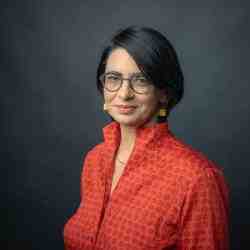Einführung
Aleta Margolis is revitalizing public education by unlocking the personal creativity of teachers and thereby dramatically improving student learning.
Die neue Idee
Aleta's approach differs in several distinctive ways from the approaches used in other professional development programs. First, she emphasizes principles that can work across different subject matters, grade levels, and classroom environments. Second, she emphasizes a student-centered classroom and helps teachers see themselves not as directing this environment, but as part of it. Third, she admits only teachers who self-select into her programs, thus ensuring an enthusiastic and receptive audience. Fourth, she provides active monthly follow-up to participants to maintain their enthusiasm and skills. Fifth, she goes beyond the classroom, bringing her methodology to other "teachers" as well, including individual tutors and community organizations. And finally, she has designed a detailed plan to replicate her teacher-training model in a variety of educational settings across the country.In Aleta's new teacher training model, teachers first examine themselves as learners through specific exercises that show how different individuals learn best. Then teachers look at their teaching methods, even down to the details of what materials they place on the walls of their classrooms. Next, teachers engage in a discussion of their best practices in order to discover their underlying teaching philosophy. Subsequently, they rework their individual teaching methods to incorporate an approach and philosophy that reaches all learning styles, one that is active and flexible, and one that teachers have found for themselves, not one given to them through a set curriculum. Her professional development programs for teachers, which range from one day to one year in length, expose teachers to the work of expert educators and researchers through a 100% participatory process. Teachers learn to create innovative lessons, which, for example, might include physically acting out a statistics scenario or math lessons based on the geometrical properties of the human body. Other activities engage both the intellect and lived experience, such as the creation of a class constitution, which allows students and teachers to work together to establish and enforce classroom rules or the development of a scientific research project which is based solely on participants' questions about the way life works. Believing that ineffective teaching is causing our public education system to falter, Aleta is piloting an innovative idea that will reshape the role of teachers and, in the end, schools. By bridging the gap between their personal philosophies and their classroom practices, she is helping teachers bring out the genius within each of their students.
Das Problem
Most of the professional development opportunities included in these programs take the form of workshops, defined curricula and classroom materials, and some form of follow-up. But according to the Consortium for Policy Research in Education, there is a growing consensus among education experts that conventional forms of professional development are virtually a waste of time. Aleta believes these programs are still missing the critical pieces of how to utilize the individual talents of each teacher, align teachers' philosophies with their practices, and give teachers tangible tools that can be implemented, sustained, and used effectively to meet the local and national standards for learning. She concludes that the trend towards enrollment in private education, the decline in qualified teachers, and the lack of problem-solving skills in students currently graduating from public schools can be reversed when the emphasis shifts from giving teachers a prepackaged method of teaching to giving them the tools that allow them to invent their own methods. In response to continuing crises in public education, hundreds of education reform models have surfaced. Together, these programs offer a variety of comprehensive and curricular-based choices, with an assortment of methods for classroom practice. They all have the same end goal–to improve student learning. Each is working to raise academic standards, gain significant parent and community involvement in education, and create strong professional development programs. More importantly, they all have the same end goal–to improve student learning.
Die Strategie
Aleta is launching and consolidating her model in Washington, D.C., but is committed to replicating it across the country. Steps that will spread CAT's methodology include: (1) inviting teachers outside the D.C. area to attend CAT's summer workshops; (2) publishing a book, which Aleta has begun to outline and write; (3) speaking at national conferences to a wide variety of educators; (4) partnering with universities to incorporate her methodology into their teaching certification programs (such as the partnership with George Mason University in Virginia.); (5) expanding professional development partnerships with national organizations beyond the current national partners and funders; (6) exploring the effectiveness of launching a model school that serves as a national training center for teachers; (7) mentoring twenty-five new teachers in Washington, D.C. public schools. Pre-workshop observations also revealed that the majority of classroom interactions (87 percent) were directional, nonacademic, (e.g., "Please take out your pencils."), or low order (e.g., regurgitation of fact: "What color shirt is the boy wearing?"). Thirteen percent of interactions involved teachers asking higher order questions. Depressingly, in all classrooms observed, no students asked higher order questions. Following the workshop, classroom interactions were more evenly divided among students and teachers. Teachers spent less time giving directions to students, and students spent more time actively engaged in classroom discussions. Prior to the workshop, students participated only 18 percent of the time (with no evidence of higher order thinking); after the workshop, student participation rose to 43 percent, 11 percent of which involved higher order thinking.
To date, the impact of Aleta's workshops has been notable. Pre-workshop observational surveys indicated that participants' teaching techniques were similar to those used in inner-city classrooms nationwide. The teachers spent, on average, 40 percent of classroom time disciplining children. After the workshop, teachers spent less time disciplining (from 40 to 18 percent) and more time instructing, coaching, facilitating, and working one-on-one with students, which in turn encourages greater independent thinking and analysis by students. Once CAT has honed a school-wide approach, Aleta plans to open an entire school with CAT-trained faculty. The school will be a model for other schools and serve as a teacher-training center, working with universities to change their teaching curriculum and requirements. She has also formed relationships with the D.C. school administration, and other key education officials who will be able to point to this model in order to change legislation.Understanding that real reform happens in schools, Aleta recently developed a model partnership with Kimball Elementary School in southwest D.C., a partnership approved by a unanimous decision of the teachers and administration of Kimball. Kimball's demographic makeup allows it to serve as an ideal model to demonstrate the effectiveness of Aleta's idea in low-income urban schools. It was also chosen for the partnership because of the twelve current Kimball teachers who had already attended CAT's Workshop in the Art of Teaching and who will now serve with five CAT Mentors to usher in school-wide change. This partnership offers monthly professional development, a two-week training for the entire school during the summer, and mentoring for each teacher.
As her strategy evolved, Aleta realized that community organizations and individuals also have a role in shaping their communities' education systems. To reach these "teachers," Aleta developed a Professional Development Academy. The Professional Development Academy partners with organizations such as Teach for America, the Folger Shakespeare Library, For Love of Children, the Heads Up, and the Washington College of Law at American University. CAT provides these organizations with workshops that develop and refine curricula through the strategies of improvisation, role-playing, and debate. In 1999, building on the Workshop in the Art of Teaching, Aleta started a five-week summer school, a test "model school." The Summer Student and Teacher Enrichment Project (STEP) brings in approximately thirty-five to forty at-risk students who are taught by CAT graduates. The students provide immediate feedback to the teachers' newly developed curriculum. Through Parent and Family Orientation days, STEP also encourages parents to become involved. These opportunities provide a forum for teachers, parents, and students to work together, creating active student-centered classrooms coupled with rigorous high-quality academic activities. In 1995, Aleta created as an institutional base the Center for Artistry in Teaching (CAT), a nonprofit teacher training organization. CAT started its programs, as most professional development programs do, with a workshop. The Workshop in the Art of Teaching, which began in 1996 as a two-week summer session, is now a full year program, reaching fifty teachers a year. It is the basis for many other CAT programs which have reached a total of 2000 D.C. public school teachers and hundreds more locally and nationally. The Workshop in the Art of Teaching challenges teachers to re-evaluate their current teaching strategies to meet students' needs. For example, Aleta encourages teachers to physically move to demonstrate a lesson or theory, and she pushes teachers' questions and classroom management styles to be active, student-centered, and artful. These teachers leave Aleta's workshops with the tools to become strong advocates of this new teaching style in their own schools. Like many social entrepreneurs, Aleta has demonstrated "serial creativity" during this past decade of revolutionizing education reform. Each of Aleta's programs encourages teachers to incorporate spontaneity, critical thinking, and problem solving into their instruction. Aiming to involve their heart, mind, and body, Aleta reengineers the way teachers see themselves and the way they teach. She motivates them to see themselves less as "providers of information" and more as "explorers" in the classroom, professionals who learn just as much as their students through the course of a day. CAT was recently renamed the Center for Inspired Teaching.
Die Person
As Aleta read this comment, she realized, drawing on her experience as a child, her work in theater, and the lessons her students had taught her, that teachers could learn "the art" of teaching in a way that would ensure that children remain active, vocal, and fully engaged learners. In 1995, she founded Center for Artistry in Teaching to achieve this vision. After she completed a master's degree in education and social policy, Aleta taught third and sixth grades. One day, Aleta read the comments of a colleague regarding one of her students: "Thomas does his homework on time and is generally well behaved in class but he needs to work on restraining his impulses." Thomas was a child who had fixed Aleta's radio, built a scale model for the Pont du Gard for his project on ancient Rome, and built a life-sized pyramid for his classmates to explore. Unfortunately, in some ways the teacher's comment was the best advice Thomas could follow if he wanted to fit in at school. Upon graduation from Brown University with a theater degree, Aleta designed and directed a program of educational alternatives for K-12 students. Drawing on her teaching and theater background, she taught court-involved and high-risk children how to address problems such as drug abuse and gang violence through the medium of playwriting. "Through this process," she says, "the kids were allowed to be creative rather than destructive people. It was this experience that prompted me to be a teacher."As a child, Aleta became passionate about the arts, especially theater. Her childhood acting experiences, including teaching at a local theater camp, inform the way she works with teachers--- to help people find powerful creative energies in themselves.

 Tile image
Tile image


